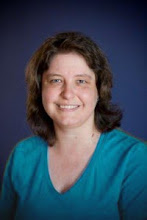If you delve into the topic of distribution, you'll most likely come across the term wholesaler (or sometimes wholesale distribution). Wholesalers are an important piece of puzzle, so let's jump into this topic today.
The main difference between distributors and wholesalers that you need to grasp is that wholesalers do not have reps that contact buyers (stores and libraries); marketing is not their function and most do little beyond having information about titles and maybe telling buyers what's new. They are not in the business of getting stores to place orders-they fill the orders. They serve as a supply point (think "w" wholesale & warehouse). They stock physical copies of books for hundreds if not thousands of publishers. In the case of print on demand, they may just have the title in a database and can get the book from the print source whenever there's an order.
In the U.S., the two major wholesalers are Ingram and Baker & Taylor. While they both serve many outlets, each has a focus. Retailers, including independent bookstores, generally turn to Ingram and B & T serves the library system.
Can your book be in the database or warehouse of a wholesaler if you are not working with a a full-service distributor? Yes. If you print or publish with certain vendors, your package may include a listing. In addition, you can apply to be a book supplier via an application on the B & T website. I don't know exactly how stringent the requirements are, but I am aware that independent publishers with as few as one book can appear in their system.
A couple of other items to note:
1.Ingram also offers full service distribution (and you must have at least 10 books to qualify), it is not the same program as what we're talking about today.
2. Wholesale orders and companies are part of the general concept of distribution which is getting books to the seller or end user. B & T refers to themselves as distributors on their website, however, they also state that they do not provide "distribution services" to their suppliers.
Again, to keep things straight on the most basic level, distributors try to get bookstores and other outlets to order books from publishers and wholesalers fill those orders.
To get a real world glimpse of what the process looks like check out Amber Polo's blog. It talks about author's expectations and interactions with independent bookstores and discusses some of the ordering process. Be sure to read the comments as well for more info.
More on distribution soon.
Good Writing & God Bless,
Cheryl Pickett
9/3/09
Distribution Part 4 - How Do Wholesalers Fit In?
Posted by
Cheryl Pickett
at
5:16 PM
![]()
![]()
Labels: book marketing, book promotion, publish a book
Subscribe to:
Post Comments (Atom)


No comments:
Post a Comment